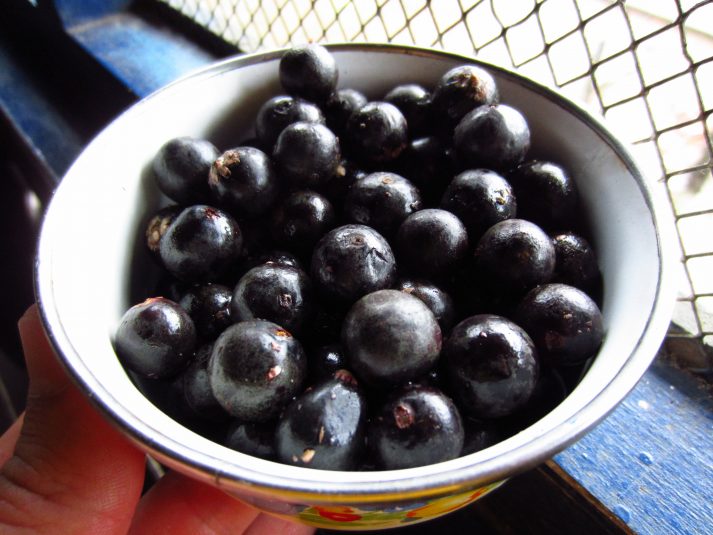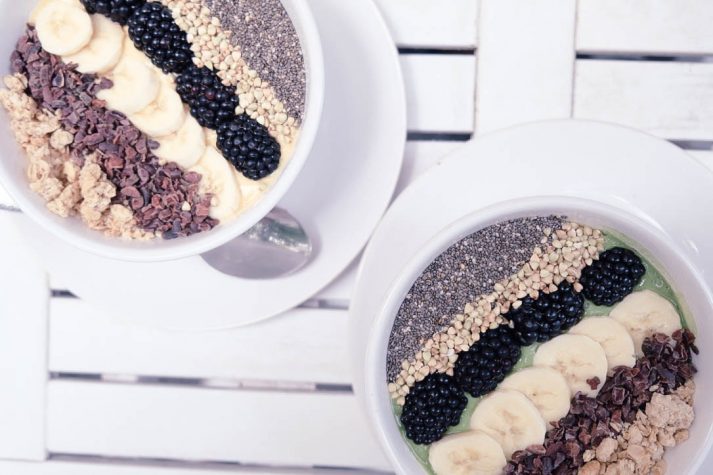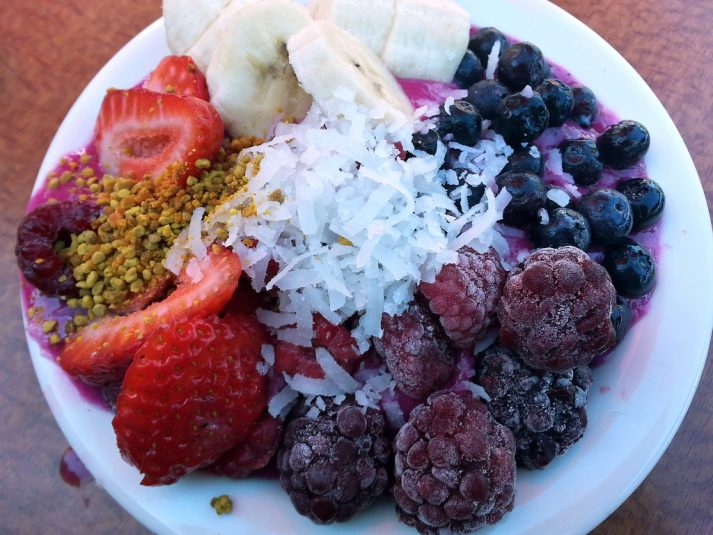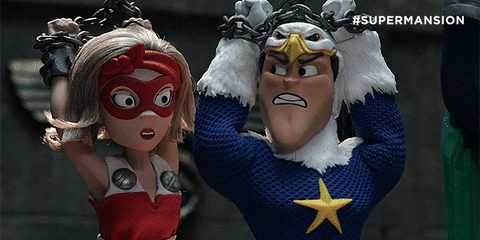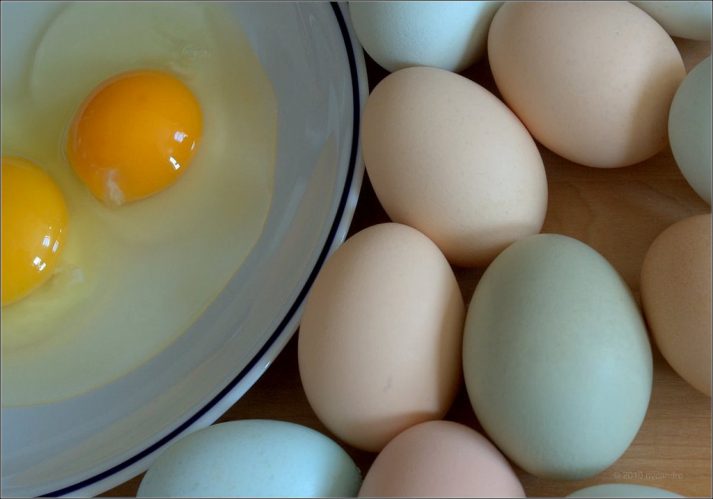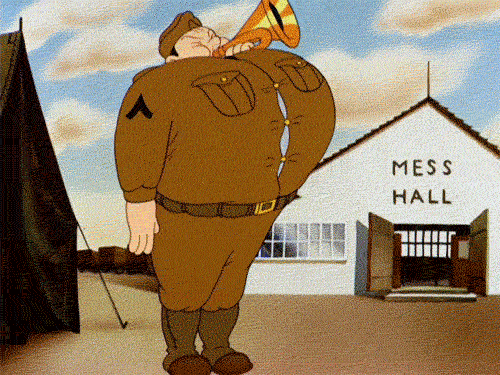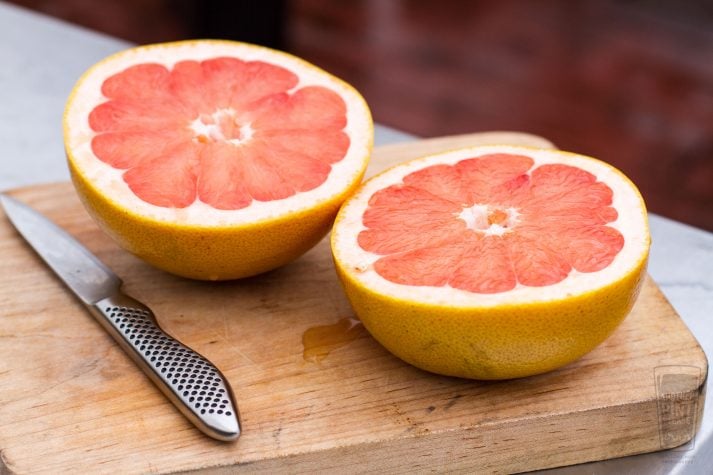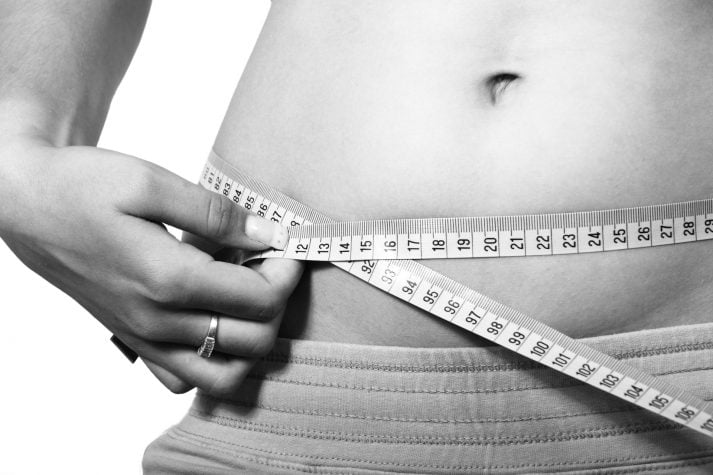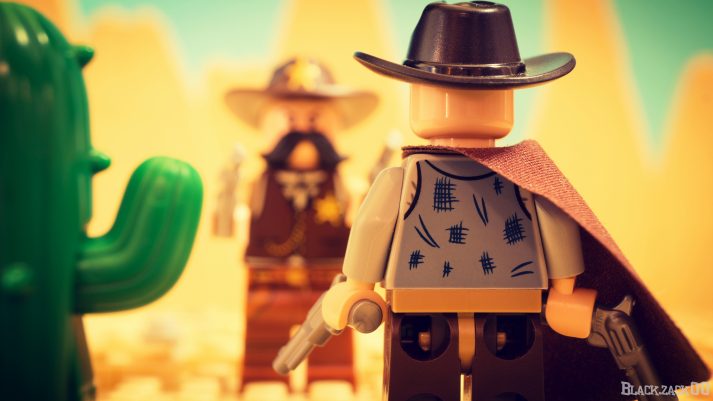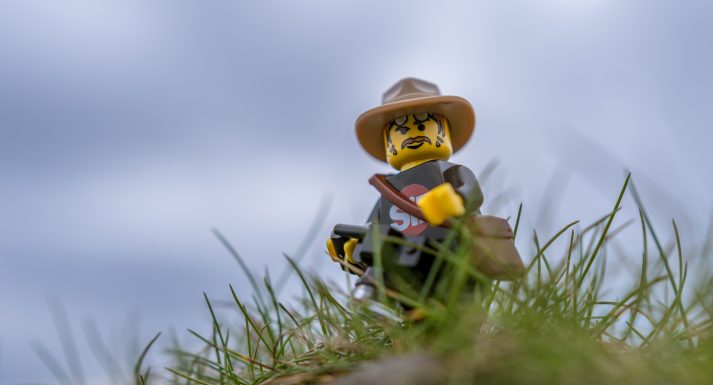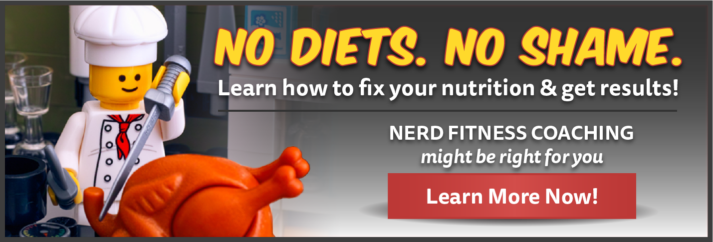If there was a high school yearbook of diets, The Mediterranean Diet would certainly win “most popular:”
U.S. News tied it #1 in their “Best Overall Diet” category.
They also ranked it #1 in the “Easiest Diet to Follow” race[1].
Fitness Magazine calls it the “The World’s Healthiest Diet” [2].
WebMD flat out said they “love” the Mediterranean Diet [3].
As far as mainstream media goes, you can’t get much better coverage than that.
Impressive? Absolutely.
Accurate? Maybe.
Here at Nerd Fitness, we love nothing better than digging into popular trends to give you the truth, the whole truth, and nothing but the truth. And lego photos and cute animal gifs.
So you’re here full of questions, which I bet go something like:
- Steve, what is the Mediterranean Diet?
- Can I lose weight on the Mediterranean Diet?
- Why is this Diet so popular?
- Can I do the Mediterranean Diet wrong?
- Can I eat pasta and pizza on the Mediterranean Diet?
- Will you buy me a plane ticket to Santorini?
These are all great questions (though maybe not the last one), and I have no doubt I can help you make sense of this and start changing your nutrition today.
Let’s get weird.

What is the Mediterranean Diet?

The Mediterranean Diet is a way of life that involves eating real food: vegetables, fruits, whole grains, legumes (beans), some fish, and a whole lotta “healthy” fat. Plus a little red wine.
It gets its name from a few key countries on the coast of the Mediterranean Sea, and studying the dietary patterns of the people who live long lives in that area.
When experts discuss the Mediterranean Diet, the words “heart-healthy” will almost certainly be attached. It’s the reason the Mediterranean Diet shines like a crazy diamond, because who DOESN’T want a healthy heart?
So why does this diet make your heart healthy, and why do people tend to lose weight on it?
Simple: Every item listed above falls into the REAL food category. When I say real food, I mean stuff that came from the ground, grew on a tree, grazed on a field, flew through the air, or swam in the water.
Here’s another way to put it: If your great grandma from the old country wouldn’t recognize it as food, it probably doesn’t fit into the Mediterranean Diet.
Sorry Pop-Tarts, Big Macs, and Coca-Cola.
Logically, the reason this diet gets good grades makes sense. Of COURSE a diet composed of REAL food like the Mediterranean Diet would have REAL health benefits.
And those benefits are awesome! The diet has been linked to a plethora of benefits, including a reduced risk of heart attack[4], and even the retention of cognitive abilities to help stave off dementia[5].
At this point you might be wondering:
“Steve, I like the cut of your jib, and this diet sounds pretty good. So, just eat real food, got it. But what about all these benefits I hear about olive oil? And I thought pasta was unhealthy. That’s a crucial part of the Mediterranean Diet too, right? Tell me more.”
I got you, boo.
Where did the Mediterranean Diet Come From?

Believe it or not, this diet wasn’t created by a goat herder in the Greek countryside.
It was actually theorized by an American scientist back in the 50s, and started gaining popularity in the 90s.
Have you heard the name, Ancel Keys?
He’s a doctor from back in the day (think 1950s) often credited with popularizing the idea that saturated fat leads to deadly heart attacks, a la high cholesterol levels in the bloodstream. We went in-depth on this very controversial subject in “A Beginner’s Guide to Cholesterol,” so I won’t rehash it here.
The reason I bring Keys up is because he was one of the early founders of the Mediterranean Diet.
Keys formulated this diet after pouring over data and research and identified that people in Greece and Italy statistically lived longer than other populations he studied. Farmers working until the age of 100 wasn’t uncommon on the Greek island of Crete.
So what was the big secret?
Are the people of Crete actual descendants of Atlantis with special DNA and olive oil running through their veins?
Not really.
Keys noted these Mediterraneans had low saturated fat intake, getting fat instead from olives and fresh fish. He also noted low instances of heart disease, and thus declared something like, “low saturated fat consumption causes fewer instances of heart disease and leads to a longer life.”
Now, if you’re a nerd like me, you are hopefully aware that “correlation does not prove causation,” that even though two variables are correlated, it doesn’t mean that one causes the other.
But it was a great story, backed up by logically sounding data from an accomplished researcher, and the hypothesis became “fact.” Thus, the hypothesis of the “Mediterranean Diet equals long life” continued to gain steam, and Keys work went on to define a huge portion of America’s nutritional guidance over the past 60 years.
Fast forward to the 1990s, and the Mediterranean Diet story reached the mainstream media with the help of a group of researchers, who decided it was time to popularize and proselytize its benefits.
In a controversial and complicated part of the story that’s much lesser known, these researchers focused on Greece and Italy, ignoring data from any other Mediterranean population that didn’t fit their narrative. Together, under Walter C. Willett from Harvard School of Public Health, they came up with the ‘Mediterranean Diet Pyramid.”
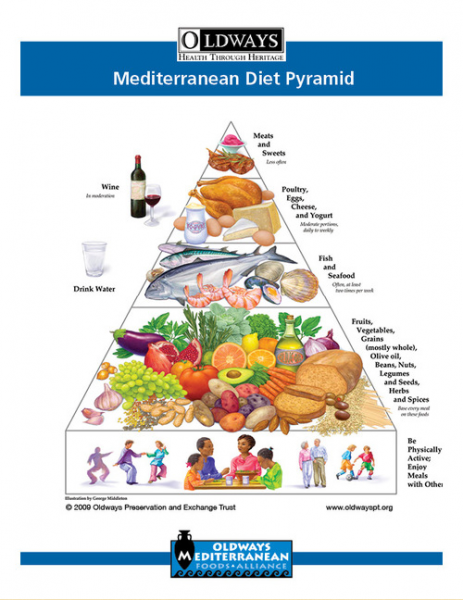
©2009 Oldways Preservation and Exchange Trust
I know what you’re thinking. Yes, this DOES look just like the food pyramid you were taught in grade school! But with more real food. And wine. And dancing.
I told you Keys’s work was very influential in the guidelines we all grew up with! So that concludes today’s history portion of the article.
Back to getting weird:

What can I eat on the Mediterranean Diet?
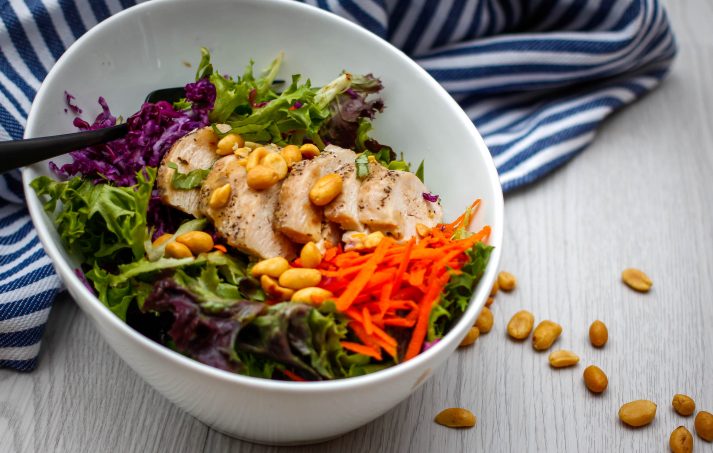
As I already pointed out, the Mediterranean Diet focuses on REAL food that’s found in the Mediterranean (duh).
It’s one of the things I love about it!
Below are our recommended types of food, examples of each, and substitutes in case you don’t happen to live on Sicily or Santorini:
- Vegetables. Common Mediterranean Diet staples are artichokes, arugula, Brussels sprouts, celery, and peas, but seriously any vegetable you enjoy is good enough! So go wild. Hate veggies? I got you.
- Fruit. Figs, mandarins, tomatoes (yeah it’s a fruit), and pomegranate are common to the area, but fruit like apples and oranges works too. Just don’t eat 5,000 calories of sugar-filled fruit and wonder why you’re not losing weight!
- Whole Grains. Barley, buckwheat, oats, rice, and wheat, in the form of fresh made wheat pasta, whole wheat bread, and pitas. Whole grains are encouraged in just about every article on the Mediterranean Diet. When we say “whole” we mean minimally processed, and are consumed in significantly smaller portions than you’re probably used to.
- Legumes. Think beans and lentils: a great sources of protein and fiber that also happen to be delicious. Hummus, a dish from the Mediterranean, is made out of the chickpeas (a legume).
- Dairy. Remember that pyramid from a moment ago? You’ll see that dairy is higher up, meaning to consume in smaller quantities. Why? because researchers were concerned about saturated fat. With the Mediterranean Diet, dairy tends to comes from cheese like brie, feta and parmesan, and Greek yogurt (though I assume there they just call it “yoghurt,”).
- Fish. Fish are packed full of Omega-3 fatty acids (good!), which tends to be deficient in most American/Western diets and has been linked to health ailments[6]. Fish like cod are found in the Mediterranean, though you could go with options like tuna or salmon too.
- Poultry. Factoid: Did you know there are roughly three chickens on Earth to every person? Roughly 20 billion fowl share the planet with us. I’ve been sitting on that statistic for a while and was antsy to share. Anyways! Go ahead and eat your preferred poultry, which could also include turkey and duck.
- Healthy Oils. Olive oil. If there is one specific food linked to the Mediterranean Diet, it’s olive oil. Olive oil is touted for its monounsaturated fat, unlike the saturated fat of say butter. Personally, I think both are fine. But I encourage people to eat plenty of healthy fat, as demonstrated by our “Beginner’s Guide to the Keto Diet.” So go ahead and use olive oil.
How much of each category should you eat? That’s a good question, and depending on your quantity of each categories, you may or may not lose weight (I’ll cover all of this in a section below).
In addition to that, everybody does the Mediterranean Diet differently:
- Some argue that dairy shouldn’t be in the Mediterranean Diet at all, because it contains saturated fat.
- Others would say red meat should be listed above, because Mediterranean dishes often include lamb.
- Depending on which country in the Mediterranean you pick, your “diet” will be very different.
You’re never going to get a straight answer on this, and that’s okay! This diet is loosely based on a region, in a moment in time, as interpreted by researchers with an agenda.
The reason I’m telling you this: I don’t care where the diet came from, or the story told around it. The same is true for Paleo (I don’t care about cavepeople!) – we don’t care about the story; we only care if the story helps people make healthier food choices.
Don’t get bogged down in the details or the dogma or the history, Instead, look at the list of food above. Shift your eating and go for big wins, by eating protein and real food as listed above, and you’ll be much better off than you are currently.
Which brings me to my next point…
What foods should I avoid on the Mediterranean Diet?

Yup, there are definitely “you’re doing it wrong” foods when it comes to the Mediterranean Diet. I know, easier said than done. If you’re gonna go Mediterranean, please cut wayyyy back on the following:
- Added sugar. This. If all you did to improve your diet was cut out added sugar, you’d be well on your way to improved health. Ditch the candy, soda, and ice cream and you’ll make me very happy. I’m generally pretty happy, but this will really put things over the top.
- Refined grain. Oh Mediterranean Diet, you do get me. The second thing I would tell people to do to improve their diet would be to cut out refined and processed grains. Your body’s blood sugar can react to it almost the same way it does to sugar.
- Refined oils. Dump out all rapeseed oil, soybean oil and canola oil. When they’re heated, like they do when undergoing refinement, they create free radicals. Which aren’t as fun as they tend to sound, because of the whole “not good for your health” thing[7]. Science, you should really think of a less awesome name here.
- Processed meat. High quality meat will have better nutrients and fatty acid profiles than its processed counterparts. So cut back on uber processed deli meats and hot dogs. As for bacon, that’s your judgment call, partner.
Now, the above shouldn’t too much of a shocker. Are you starting to see why the Mediterranean Diet is popular and reputable? It keeps things simple!
Eat real food.
Avoid unhealthy food.
Use olive oil.
Of course, this is ALL easier said than done, and whether or not you’ll lose weight on the diet is juuuuust a bit more complex than the above.
Will I lose weight on the Mediterranean Diet?
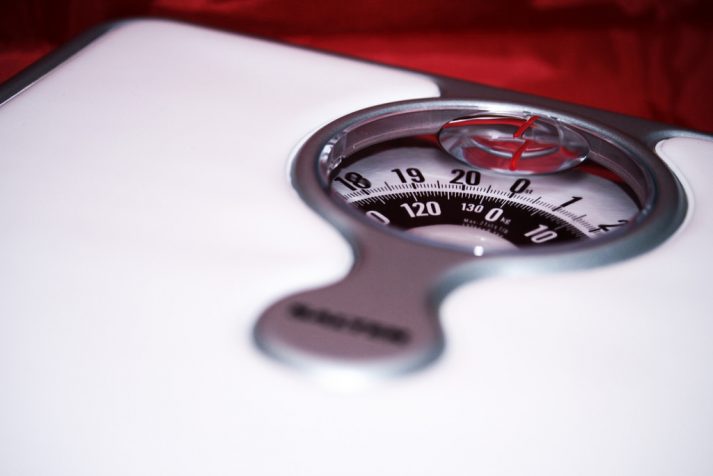
Short answer: It’s certainly possible.
Longer answer: If you currently eat a standard American diet full of processed food and sugar, the Mediterranean Diet will probably help you shed body fat if you can stick with it consistently and follow it intelligently.
I’ve talked about this extensively in our “Beginner’s Guide to Healthy Eating,” but the trick of any self respectable diet rests on eating REAL food and eliminating the bad food.
That’s it.
It’s why the Keto Diet and the Paleo Diet both work – for people that can stick it. The same goes for Intermittent Fasting. These diets all focus on cutting out all the processed garbage, consuming real food, and keeping total calorie consumption under control. They just do it with different rules to follow.
The Mediterranean Diet is no different.
It focuses on real food that people in Mediterranean Europe have been eating for generations. Fresh vegetables, fruits, and fish are nothing new to the people of Greece! If you went back into the days of antiquity, after slaying a minotaur, you’d bask in a feast of fish, olives, and berries.
Of course, ALLLLL diets come with a big fat caveat:
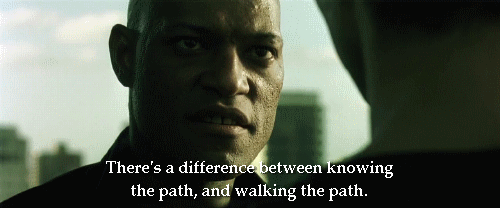
Knowing you should eat fresh veggies, fruit, and fish is VERY different than actually sticking with it when life gets in the way, your kid gets sick, and you have to pick up a second job.
We all know we should eat better. But HOW to eat better, consistently, permanently: that’s where lasting weight loss and decades of healthy living happen.
This is the big reason why we put such an emphasis on nutritional planning for each person in our 1-on-1 coaching program: you have to make the diet work for YOUR specific life situation!
So, the reason the Mediterranean Diet works is the same reason other diets work: eating real food makes you more likely to consume fewer calories on a consistent basis, and you can’t defeat thermodynamics. Eating 5,000 calories of pasta and fish, though technically allowed on the Mediterranean Diet, will still result in weight gain.
So yes, if your current eating habits aren’t great, moving towards a Mediterranean Diet would be a solid move, especially if it helps you change your relationship with food and teaches you about portion sizes!
I’ll admit there’s controversy on how the Mediterranean Diet was formulated, but it ALSO encourages people to eat more real food, in smaller quantities, and has a good chance of weight loss if your changes are permanent.
Just remember: temporary changes create temporary results. If you follow a Mediterranean Diet to lose a few pounds and then go back to how you eat now, you’ll end up right back where you started!
We want small wins, permanent changes, and momentum!
Should I eat whole grains, dairy, and legumes on the Mediterranean Diet?

I have absolutely no problem if you choose to eat grains, dairy, or legumes. I certainly do, and I consider myself a healthy, well-informed individual.
So what gives? For starters, we’re not a Paleo Blog – we’re a “help people get results in the way that works for them” blog.
For some people, that’s Paleo – their stomach doesn’t process dairy well, they have gluten intolerances, or they like the idea of eating like a caveperson.
For others, it’s Keto. They eat a LOT of cheese and healthy fat but minimize carb consumption.
For the majority of the planet, however, these diets are FAR too restrictive, so they instead are looking for a strategy that fits into their healthy lifestyle. That’s cool.
So should you eat grains, pasta, rice, etc, as allowed on the Mediterranean Diet? If you can keep your portions under control, sure. Just be careful, as grains can cause issues:
- Grains are high in carbohydrates and calories. Somebody could technically be “Mediterranean” and consume 5,000 calories of whole grains every day. They’ll gain weight and wonder why it’s not working.
- Some people have gluten intolerances. Grains have only been consumed for the past few thousand years of our existence as a species, and some people have challenges consuming them, or feel bloated afterward.
- You don’t actually need grains. Yes, you need vitamins like B1 and B2, plus magnesium and potassium. But vegetables have these too, with less carbs and for some, less digestive issues. When you start to calculate the risk to reward ratio of grains, you need to make sure the juice is worth the squeeze for your situation.
You can apply similar “concerns” to both legumes and dairy. Both can be high in caloric content or introduce digestive problems for certain people.
My recommendation: treat yourself like a scientist and treat this like an experiment:
If you are following a Mediterranean Diet and consuming dairy, grains, and legumes and you’re getting results and a clean bill of health from your doctor, GREAT! Keep doing what you’re doing.
If you are following a Mediterranean Diet with dairy, grains, and legumes and NOT losing weight, try minimizing your consumption of some/all of these things to see if that changes things.
I know how tough it can be to eat just HALF of something on your plate, or eat a smaller portion of a food you really enjoy, so I’m gonna share with you a diet that is picking up some steam, and might be a good experiment for you to consider.
Should I Consider a Low-Carb Mediterranean Diet?
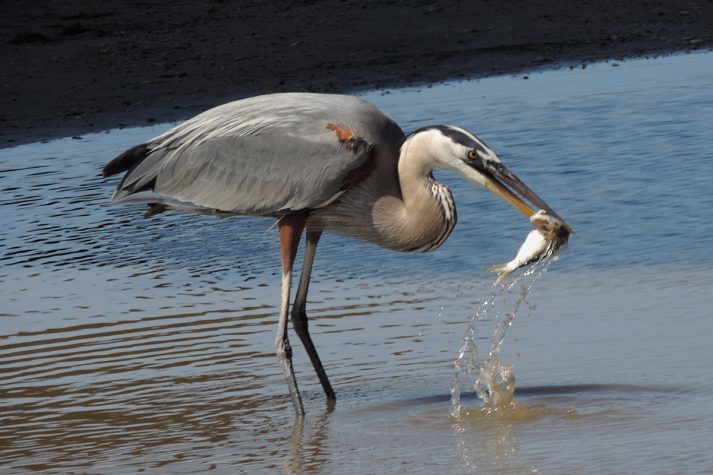
What happens when you cut out the grains and dairy from a Mediterranean Diet?
You end up with a low-carb Mediterranean Diet.
This diet has actually been tested and named, in what is referred to as the Ketogenic Mediterranean Diet or Spanish Ketogenic Mediterranean Diet (SKMD). The fat mostly comes from olive oil, there’s still red wine (I swear I’m getting to this), with plenty of green vegetables and salads for carbohydrates. Plus fish for protein. Lot’s of fish. In Spain, fish is a main component of diet, hence the Spanish in the SKMD.
And who would have thunk it, it works!
The SKMD has been shown to help improve fatty liver disease and metabolic syndrome[8]. Not to mention the SKMD is effective for weight loss and waist circumference shrinkage[9].
I’ve already covered the ketogenic diet extensively, so I won’t get into it (seriously, go read that post – it also has cute animal gifs) here. If you are going to pick a modified version of the Mediterranean Diet, the SKMD would be the optimal choice in my opinion.
Overwhelmed with Mediterranean, saturated fats, keto, or SKMD?
I hear ya.
Navigating all of these diets can be really tough. And maybe you’ve even tried the Mediterranean Diet before and couldn’t get the results to stick. That’s because diets are challenging, and life gets in the way.
If this is you, and you don’t have time to figure out how to make food work for your busy lifestyle, Nerd Fitness has a pretty sweet 1-on-1 Coaching Program to create custom solutions for each client that fits their life!
You can schedule a free call with our team to learn more by clicking on the image below!

Easy Mediterranean Diet Recipes
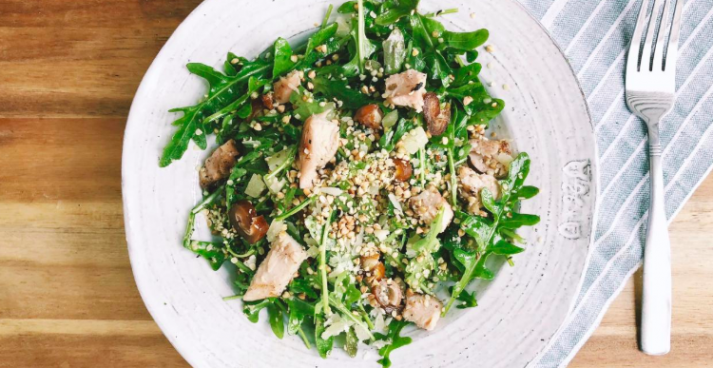
Need some help figuring out what all this will actually look like on a plate?
After all, just having a list of foods is like having the ingredients of a cake. It’s definitely not the same as having a cake.
Sorry for making you think about cake. I’ll go do 10 push-ups as punishment.
And I’m back.
Because I like you as a person, I did some research and found some super simple recipes for the “standard” Mediterranean Diet:
If you are an overachiever, here are some recipes for the Spanish Ketogenic Mediterranean Diet:
That should get you started.
If you have other favorite recipes or resources, leave a comment below so I can add them here to this list!
Other Key Reasons Why Mediterranean People Live Longer

So far in this article, we’ve only focused on what to eat. Which is logical, because the Mediterranean Diet is first and foremost an eating regiment.
Whether you live in midwestern Ohio or Timbuktu, you can mimic the nutritional strategies of a centenarian Mediterranean (a 100 year old Mediterranean woman!) thanks to global markets.
However, I’d be an idiot if I didn’t also mention all the other lifestyle benefits certain Mediterranean people have that ALSO factor into their longevity:
- Meal time as a social event. In a traditional Mediterranean household, friends and family come together over food as an experience. This allows conversation to integrate into the meal, which extends the amount of time spent consuming food. The faster you scarf down food, the more of an insulin response you’ll create, and the more likely you’ll be to overeat when more food is available[10]. It takes your body time to realize it’s full, which happens too late when you are scarfing down food mindlessly in front of a screen.
- Smaller servings. When comparing Western meals to those of Europe, one thing becomes plainly obvious in most situations: we tend to eat more food than our friends across the pond. Our plates are bigger and our servings are larger. And all other things being equal, the bigger the portion placed in front of you, the more you’ll probably eat[10]. Want to eat less to help drop some body fat? Eat smaller servings by using smaller plates! You can trick your brain into eating less food. Here’s the study where they demonstrated just that[11]. Boom, science.
- Move naturally. Think of life in the Greek islands back in 1950s – how many of these people spent an hour in a car commuting to a desk job where they worked 60 hours a week? Probably not many! Instead, it was a LOT more walking and local living. You can replicate this by spending more time walking and less time sitting! Every step starts to add up to a lot of physical activity. Plus, wine can add to spontaneous dancing like Zorba the Greek (seriously, the next section is about wine, you’re almost there).
- Take a nap. It’s not uncommon for people in the Mediterranean to take a nap after lunch. This could help with their waistline. I know this is common knowledge, but getting plenty of sleep is important in your weight loss journey. Lack of shuteye has been shown to interfere with insulin responses after meals[12]. That’s right, you could be eating well, but still wreak havoc on your blood sugar by sleeping poorly.
Okay. You made it.
I’m proud of you.
You waited patiently, through this whole article and now we are at….
Can I drink wine and alcohol on the Mediterranean Diet?
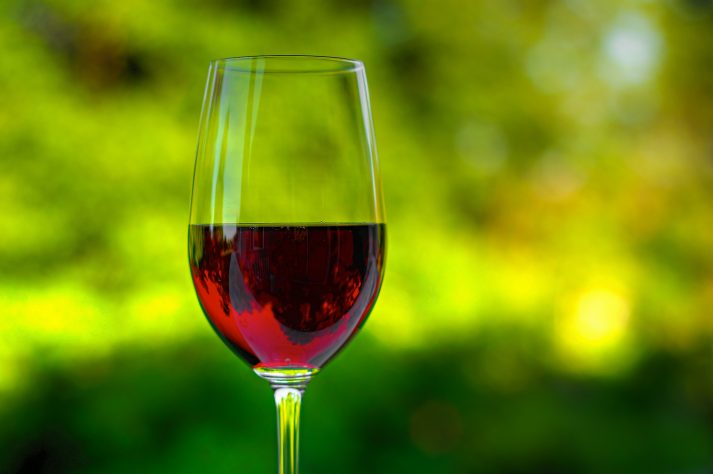
Yes, you can enjoy a little wine on the Mediterranean Diet.
Hip hip hooray!
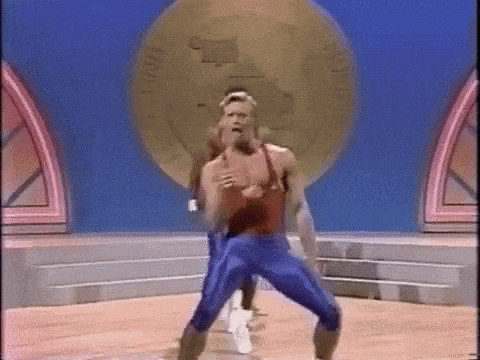
But seriously, let’s chat about this because I too enjoy adult beverages.
Drinking wine is customary throughout the Mediterranean: it’s served during dinner, to be paired with food and to encourage good conversation. Is it the wine itself that leads to better health? Or does wine add to the experience of dinner, creating an event to be remembered?
(It’s totally the latter.)
Real talk on alcohol: so many people consume alcohol that any diet that says “you cannot drink any alcohol ever” is doomed and nobody would stick with it. So in this made-up diet that claims to mimic old ways of eating, it recommends consuming wine in moderation.
I see this in every diet:
- Paleo dieters drink tequila.
- Keto dieters drink whiskey.
- And Mediterranean dieters drink red wine.
We’ve talked about alcohol extensively here at Nerd Fitness, and one of our preferred drink recommendations is red wine. As long as you are keeping your calorie consumption under control, occasionally enjoying adult beverages can be part of your strategy.
We cool? Cool.
Frequently Asked Questions on the Mediterranean Diet

1) “Steve, I had a grand father who grew up on the Mediterranean and he ate differently than this. Henceforth, this diet is null and void. GOOD DAY, SIR.”
Okay that’s not really a question. And kind of rude. But I’ll address it. I want to stress again that the Mediterranean Diet may or may not be exactly what people in the Mediterranean back in the 1950s actually ate.
And I also want to stress again that it DOESN’T matter!
We only care about results, and that comes from permanent changes to somebody’s relationship and decision making with food.
So if the idea of “Eating like a Mediterranean person” makes sense to you, great!
And if your grandfather ate differently, great! Eat like him and let me know how it goes!
2) “Steve, Italy is on the mediterranean. Pasta and pizza come from from Italy. So I can stuff my face with pasta and I’m gonna lose weight and be really good looking, right?”
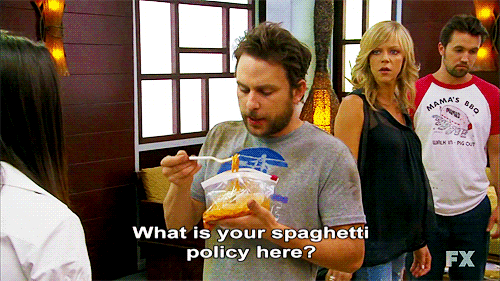
Solid question. Sure. Consume whole grain pasta while on the Mediterranean Diet, but do so in a MUCH smaller quantity than you’re used to consuming if you are trying to lose weight.
Pasta is generally a side dish in the Mediterranean. It won’t be served to you in a huge giant bowl like it is in the United States. If you do decide to eat things like pasta, do what they do in the Mediterranean, and use it to complement a dish, not BE the dish.
3) “What’s up with goat milk?”
Goats are badasses in the Mediterranean, with their ability to travel over rocky terrain. Sorry cows, step up your game. This explains why goat dairy is quite common in the Mediterranean.
If you are deciding to consume dairy, a goat might be your new friend[13]. The milk generally contains more fat than from a cow, which fits into our SKMD strategy. Also less lactose, ie sugar. Structurally, some people have an easier time processing goat’s milk than traditional dairy.
Granted, some people find the flavor of goat’s milk off and don’t like it. But Steve can only solve so many problems. I try.
4) “Will olive oil make me live forever? The future is gonna be rad.”
Yes. It will also give you superpowers. Okay, not really. But extra virgin olive oil is great. It’s my go to for salads. Add in some vinegar and you’re crushing it in the “flavorful, healthy salad” department.
However, I don’t think it’s the secret ingredient of the Mediterranean Diet. Most praise of olive oil comes from the fact that in contains no saturated fat. Which is one of the main reasons the Mediterranean Diet became so popular. But it’s still very high in calories, so pouring tons of healthy olive oil on everything could be the reason why you’re not losing any weight!
I personally enjoy and use olive oil, grass fed butter, and/or coconut oil depending on the meal. So, if you love olive oil and put it on everything, great. Just know that it won’t do your laundry, wash your dishes, or tuck you in at night. Or make you live forever. It’s oil from olives.
5) “Steve, can I use canola oil instead of olive oil?”
Despite what other sites suggest with the Mediterranean Diet, I would advise minimizing canola oil consumption and seek out other solutions where possible. Canola oil is a vegetable oil mostly derived from rapeseed, it’s often heavily processed, and actually creates a small amount of trans fat. Bad news bears. If you need a substitute for olive oil, go with avocado or coconut oil.
6) “Do I HAVE to eat seafood? I don’t enjoy the taste of fish, and I believe that “fish are friends, not food.”
I get it. Fish isn’t for everyone. I actually don’t like fish myself, despite growing up in a fishing town on Cape Cod.
I know, sacriligious.
No, you do not need to eat fish to follow the Mediterranean Diet. The reason seafood is recommended on the Mediterranean Diet is because it’s generally low in saturated fat and plentiful in that region. But again, I’m not a big supporter of reducing saturated fat intake at all costs. So if consuming fish makes you gag, don’t torture yourself. Stick with chicken or turkey. Or…
7) “Should I really limit red meat on the Mediterranean Diet?”
I may be summoning the wrath of the Mediterranean gods with this one (forgive me Zeus), but limiting red meat may be a goal without merit. I know. I can see the clouds and lighting bolts forming now.
But as Rule #8 of the Rebellion states, question everything. Even “wisdom” from the old countries.
And that includes the conventional wisdom of limiting red meat. Yes, I remember that Harvard study that says red meat causes cancer, and I disagree with the fear-mongering that resulted [13].
If you do decide to partake, go with good quality sources for your red meat (grass fed wherever possible).
Also, as we’ve mentioned earlier, diet differs quite a bit throughout the Mediterranean, and meat can actually be pretty prominent in the form of lamb, goat, and beef. Even pork. Again, the Mediterranean Diet as opposed to what people in the Mediterranean actually eat.
So be true to yourself and do what feels right for you.
My advice: everything in moderation. Including moderation.
However, I apologize in advance if you get struck by lighting after eating lamb chops.
Resources to help you start the Mediterranean Diet

You’re convinced you want to start the Mediterranean Diet today – congratulations!
Need more help?
William Willett, who helped create the Mediterranean Diet Pyramid I showed above, has a book where he lays out all his thoughts on why the diet works. Check out Eat, Drink, and Be Healthy for his argument.
The organization Oldways is more or less responsible for the modern way we understand the Mediterranean Diet, and you’ll never run out of their recipes. I’m still not entirely convinced the organization doesn’t solely exist to sell more olive oil, but that could be paranoid Steve being paranoid. Let me adjust my tinfoil hat…
Also, I’d be remiss not to mention our own Nerd Fitness Academy. 6+ months of at-home workout routines, a whole nutrition model, and a mindset model to help you make sense of everything. If you’ve never stepped foot in a kitchen outside of grabbing milk from the fridge to drink out of the jug, we’ll help!
And if you’re just looking for basic nutritional guidance, we have a free 10-level nutritional blueprint that you can download, print, stick on your fridge, and start leveling up right now.
You can get it when join our Rebellion mailing list below:
Download our free weight loss guide
THE NERD FITNESS DIET: 10 Levels to Change Your Life
- Follow our 10-level nutrition system at your own pace
- What you need to know about weight loss and healthy eating
- 3 Simple rules we follow every day to stay on target
Want To Try the Mediterranean Diet? Here is your mission

Just in case you skipped to the end of this article, or you’re looking for a quick recap, I hear you.
Pros of the Mediterranean Diet.
- A focus on REAL food. All of the recommended food choices of the Mediterranean Diet are minimally processed. This is most of the battle on the war on diet. If you minimized the processed food on your plate, you’d be doing most of the heavy lifting when it comes to healthy eating.
- Plenty of veggies, fruit. Eating vegetables is the least controversial recommendation on diet that has ever existed. No one questions the advice. This is less true on fruit, but come on. If all the sugar in your diet came from fruit, you’d be in rockstar mode.
- Lots of healthy fats. The Mediterranean Diet is not a low fat diet. This is great. You need fat in your diet. Olive oil and fish are a great way to get there.
Cons of the Mediterranean Diet:
- Saturated fat may be limited unnecessarily. Without saturated fat, there’s really only a handful of sources left to get fat intake. Granted, as addressed a few sentences ago, fish and olive oil are solid choices. But still, meals will need to be quickly rotated without saturated fat as an option.
- Grains, even whole, might not be the greatest idea for some. They are high in calories and can derail even the best laid plans, so only eat if it fits your goals and lifestyle.
- Dairy isn’t exactly a homerun if you over consume. Like I mentioned earlier, not everyone handles dairy well, it can contain plenty of lactose (sugar), and calories.
- Doesn’t address portion size or calorie amounts. People can DEFINITELY gain weight on the Mediterranean Diet if they eat 5000 calories worth of pasta each day. You have to be smart about portion sizes and not just eat all day every day (which is true of every diet).
- It doesn’t address overall lifestyle changes or human psychology. We all know we need to eat healthier – the problem is actually sticking with it! So having a list of food to eat is great. But learning how to make it fit into your lifestyle is even more important.
If you have been nodding your head at the Mediterranean Diet and are planning on going all in with it – you have my permission!
If you are already eating a keto or paleo-ish diet and were wondering if you should switch to this diet, I’d only suggest it if you were struggling with compliance, not losing weight, and not getting results.
YOUR MISSION THIS WEEK: cook a Mediterranean meal for a friend or loved one this week, and make the dinner an event!
Send them this article and explain that Steve gave you direct marching orders to make a meal for a friend or loved one. Together, you can complete this mission. You can even have a little wine if it suits you. And make a toast. OPA!
I suggest making the Avocado Hummus referenced earlier. It’s seriously just cutting up three ingredients, adding lemon juice and olive oil and mixing them in a bowl. Serve them with whole grain pita chips, or sliced veggies if I scared you off grains forever.
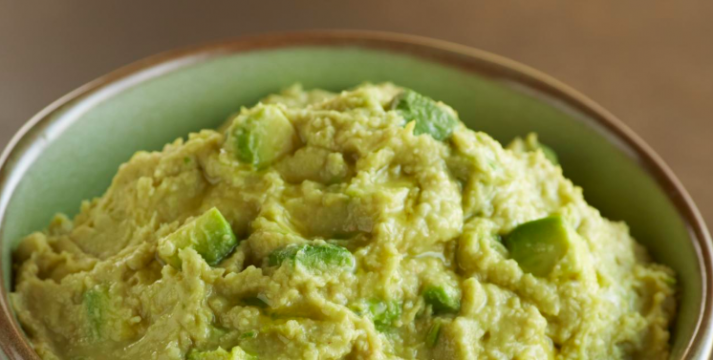
If all of this is overwhelming, or you need help on making better food choices, you are not alone!
Like I said earlier, we have a community of people who are busy and looking to live better, and a whole team dedicated to helping those people!If you just want to be told what to do, and want help staying accountable, consider checking out our 1-on-1 Online Coaching Program if you want to take it to the next level.
You schedule a free call with our team to see how we can create a custom workout program and nutritional guidance for your specific situation by clicking on the button below!

So let’s hear from you: After you’ve completed your mission, leave a comment below and I’ll buy you a plane ticket to Santorini. Okay not really. But I will give you a high five if we ever meet on a fishing boat off of Crete. Deal?!
If you started the habit of cooking for company, you’d make Steve a happy camper.
Let me know if you have any more questions, and I hope you can get started on your Mediterranean lifestyle today.
Now pass me the corkscrew!
-Steve
PS: I want to give a shoutout to Nina Teicholz and her book The Big Fat Surprise, whose chapter “Selling the Mediterranean Diet” served as a reference for this post.
ALL Photos Sources can be found in this footnote here[14].
source
https://www.nerdfitness.com/blog/the-beginners-guide-to-the-mediterranean-diet/

